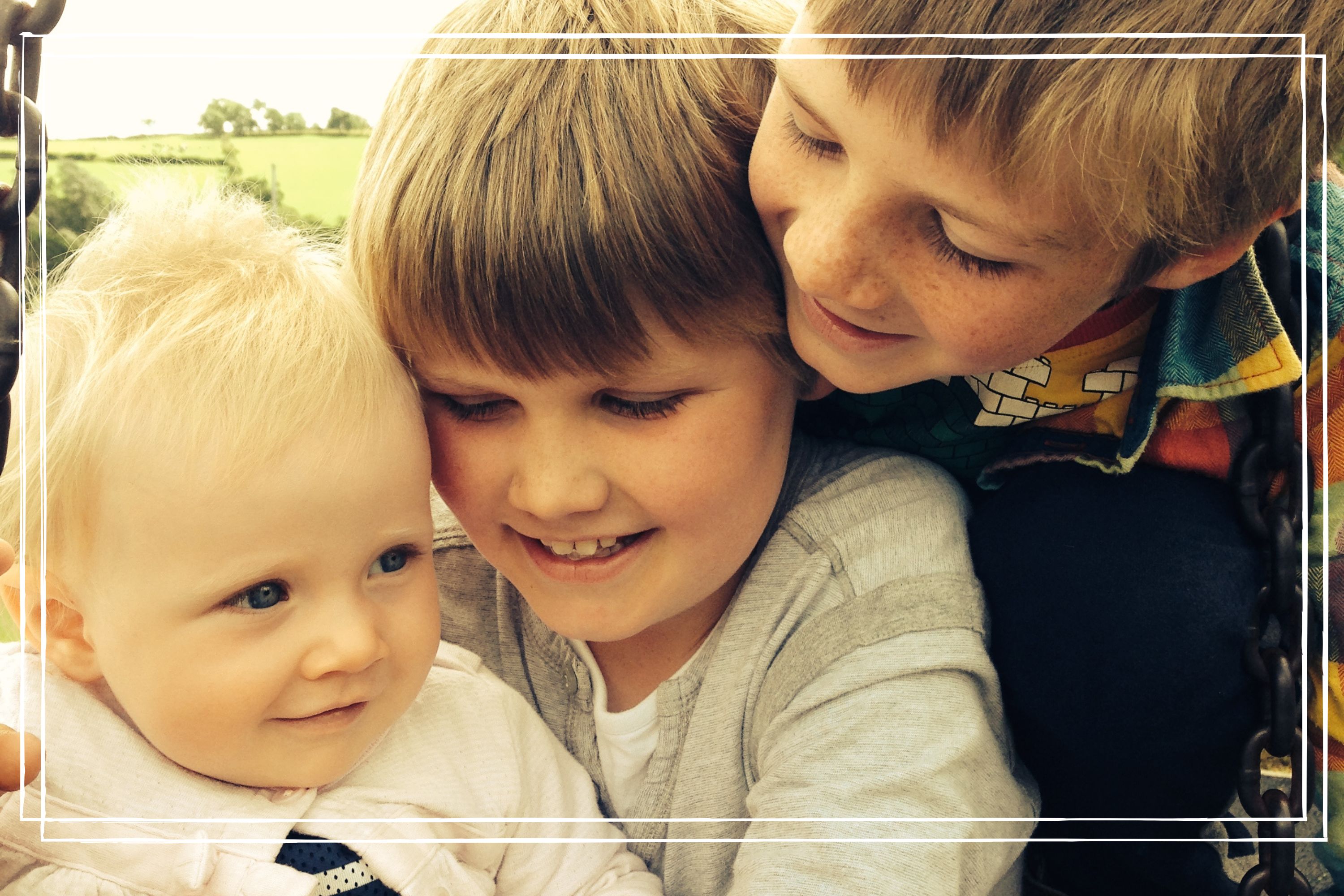
It’s time for a ban on smacking children in England and Northern Ireland, according to doctors. GoodToKnow deputy editor and mum-of-three Heidi questions; isn't it time we stopped having this debate?
Smacking is up for debate once again, prompting widespread discussion of parenting styles and effective methods for disciplining children.
The Royal College of Paediatrics and Child Health has published a landmark report which lays out the health, education, and legal case for a legislative change to remove the “reasonable punishment” defence and to prohibit all physical punishment of children in all circumstances in England and Northern Ireland.
A smacking ban is already in place in Scotland and Wales, as in many other countries around the world, but in England and Northern Ireland, parents are permitted to use “reasonable chastisement” when disciplining children.
A ban on smacking has a groundswell of support from parents, mental health professionals and children’s charities, who argue that physical punishment, including smacking, leads to lasting physical and mental damage in children, including aggression.
"I know that ‘I was smacked and I turned out fine’ is no defence for the practice of hitting kids."
On the other side of the debate, those against a smacking ban say such a move would represent a worrying ‘overreach’ of the government and argue that parents must have the autonomy to choose how to discipline their children.
Personally, I’m not convinced that smacking perpetuates cycles of violence. I was smacked as a child, as were most of my friends who also grew up in the 80s. I have a memory of running away from a smack by heading for our heavy velvet curtains, spinning around inside them to soften the blow. I’m well aware that this sounds horrendous by today’s societal standards and parenting norms but at the time, it was just what happened if you got lippy or wouldn’t stop fighting with your brother.
It hasn’t turned me into a violent person, but I also know that ‘I was smacked and I turned out fine’ is no defence for the practice of hitting kids. After all, I rode in cars without seatbelts too and survived. That doesn’t lead me to argue against seatbelt safety laws.

Unfortunately, children are still seen as second-class citizens in our society, whose rights, feelings and experiences matter less than those of adults. This is something psychologists call Childism – the conscious and unconscious discrimination of children. Most parents who smack their children do so because that’s how their parents taught them to deal with conflict in the home. Smacking can only ever create fear, never respect, which is why so many parents who smack young children find they might struggle with unruly teenagers because they have nothing left in their discipline toolkit when that child is no longer scared of them. Smacking children isn’t only morally wrong; it’s an entirely ineffective form of disciplining children. Ultimately, what we need is education on child development and more support for parents, and giving children the same rights as adults is an essential first step.
Nevertheless, it’s absurd to me that there’s even a debate around whether smacking should be banned. The discrepancy between the rules on smacking in different parts of the UK is also problematic. Smacking my children is permitted where I live in Northern Ireland, but my children’s cousins, who are growing up in Scotland, are protected from smacking.
I find it bizarre that the current legislation is effectively saying you can hit your child if you think it’s a ‘reasonable’ act - but who’s to say what’s reasonable? And isn’t it the case that an abusive parent, for example, is unlikely to have a reliable grasp of what’s reasonable? That the defence of reasonable chastisement effectively protects a parent who hits a child makes my blood run cold.
What if this ruling was applied to adults? Imagine if the law said it was acceptable for my husband to hit me during a disagreement if he felt it was reasonable chastisement. Picture a world where my boss could give me a quick smack in the face if I messed up at work. Madness. Any form of violence towards another human being is wrong, and we should have firm laws in place to prohibit the use of physical violence against our most vulnerable members of society.
And yes, before you ask, I have smacked my children. I regret it enormously but at the time, smacking was still considered by society to be a legitimate method of discipline. Thank goodness parenting styles have evolved. My youngest, born eight years after her older siblings, has never been smacked. When we know better, we do better.
Learning about nonviolent communication transformed my parenting style and equipped me with a new raft of tools to employ. Discovering how to parent with empathy changed my approach to discipline and helped me find more effective methods. And learning to take better care of myself as a human, has resulted in me taking much better care of the humans whose lives are, quite literally, in my hands.
Looking to change your approach to discipline?
Banning smacking doesn't mean permissive parenting but stems from evidence that there are more effective, non-harmful ways to connect then correct children and their behaviour.
Take a look at the UNICEF site for ideas, or Action For Children for advice on discipline without smacking. Also, our resident teen and tween expert, Sarah Ockwell-Smith has a useful Gentle Discipline book with page upon page of helpful advice and support.
We have rich and helpful content on the different parenting styles families are trying these days, as well as ways to teach your kids how to manage their anger and whether lying to your kids is ever OK.







